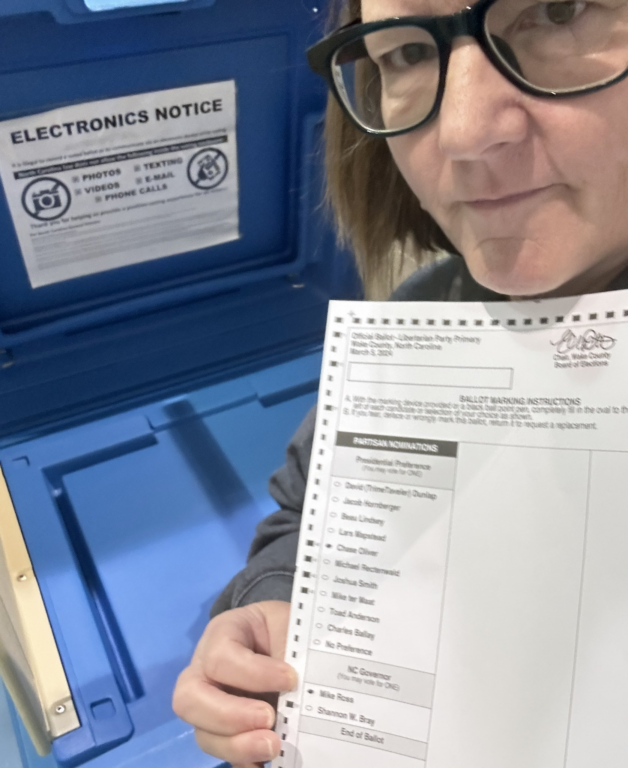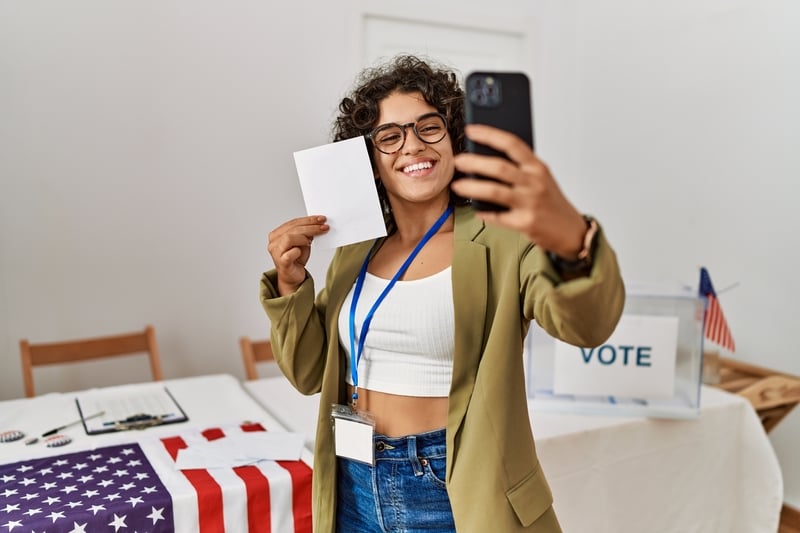
RALEIGH, NC – On Election Day, taking a selfie in the ballot box might seem like a fun way to commemorate your civic duty, but in some places, it could land you in hot water—literally. In North Carolina, a recent case has brought this issue into the spotlight after Susan Hogarth, a candidate for the North Carolina State Senate under the Libertarian Party, found herself threatened with criminal prosecution for doing just that.
In March 2024, during the state’s primary elections, Hogarth snapped a photo of herself in the voting booth and shared it on X, the platform formerly known as Twitter. Her “ballot selfie” quickly garnered attention, especially after she added a caption criticizing laws against such photos. But what started as an innocent post soon escalated into a legal battle.

A few days after posting the photo, Hogarth received a letter from the North Carolina State Board of Elections demanding that she take down the image. The letter warned her that she could face prosecution for a Class 1 misdemeanor under state law, which prohibits photographing, videotaping, or recording the image of a voted official ballot for any purpose not permitted by law.
But Hogarth wasn’t about to back down. On August 22, she filed a federal lawsuit against the North Carolina Board of Elections, challenging the statute as a violation of her First Amendment rights. In her complaint, Hogarth argued that the ban on ballot selfies is a content-based restriction on free speech that isn’t narrowly tailored to serve a compelling state interest. She also made it clear that she does not intend to remove her post from March 5, 2024, which has since been viewed thousands of times, and that she plans to take and post more ballot selfies in future elections.
Hogarth’s case is part of a broader debate over the legality of ballot selfies, which have been a point of contention in several states. Proponents of the bans argue that they help prevent voter intimidation and the potential for vote-buying by ensuring the secrecy of the ballot. Opponents, like Hogarth, contend that these laws infringe on free speech and the right to document one’s participation in the democratic process.
As this lawsuit unfolds, it raises important questions about the balance between protecting the integrity of elections and upholding individual rights. While the outcome of Hogarth’s case remains to be seen, it’s clear that the issue of ballot selfies isn’t going away anytime soon.

